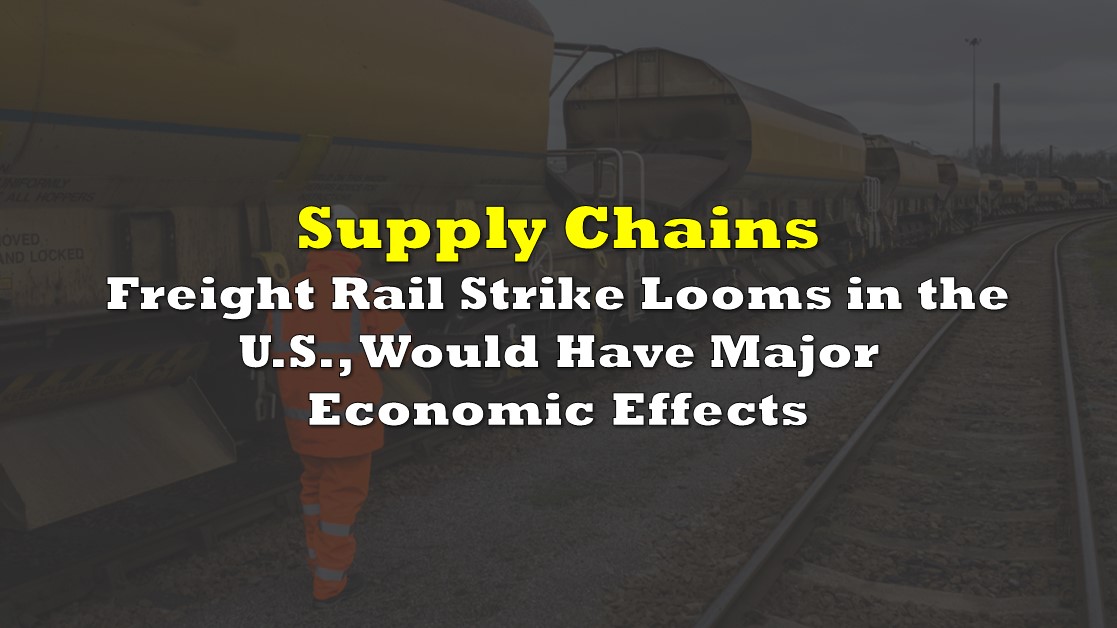As investors look forward to two key economic releases/events over the next two weeks — the September 13 release of the August U.S. Consumer Price Index (CPI) and the September 20-21 Federal Open Market Committee meeting of the U.S. Federal Reserve — another event could trump both in near-term economic impact At just after midnight ET on September 15, 115,000 U.S. freight rail workers could walk off their jobs if they cannot reach a contract agreement with the railroads.
The Association of American Railroads estimates that a national freight rail shutdown would hurt the U.S. economy by at least US$2 billion per day. The last national rail strike was 30 years ago, which the U.S. Congress voted to end.
Rail workers are covered under a different labor law than most U.S. workers. This exception allowed President Biden on July 15 to block a strike then by naming an emergency board, called the Presidential Emergency Board (PEB), to attempt to formulate a compromise labor pact.
The PEB did just that, recommending a 14.1% wage increase effective immediately, and a 24% compounded pay boost over the five-year period 2020-2024. Service recognition bonuses and retroactive wage increases would result in a typical employee receiving an immediate payout of around US$11,000. By the end of the proposed agreement, the average pay of a rail worker would be about US$110,000; factoring in benefits like pensions and healthcare, the total value could be closer to US$160,000. The PEB’s proposal was somewhat less than what the unions requested and somewhat more than railroad company managements had offered.
Remarkably, union leadership representing only five fairly small unions (totaling about 21,000 workers) agreed to the tentative labor deal, although individual members would still need to ratify it. Representatives of seven larger unions, including those acting on behalf of conductors and engineers, continue to balk, citing continued unfair requirements for the number of work hours and limited ability to take time off for any reason.
By law, President Biden cannot block a strike a second time, but the U.S. Congress could vote to block or delay one. That body could, among other things, vote to enact the PEB’s wage recommendations or appoint arbitrators to craft another wage deal. The rub in all this: Democrats control Congress, and they are generally closely tied to unions. On the other hand, Democrats, as the ruling party, would presumably not want to see a prolonged, economy-affecting strike take place just before the key November mid-term elections.
Railroad Workers United, which represents the rail workers, reports that in a recent survey of its members, 90% of workers would turn down the PEB deal and go on strike (This percentage is, however, impossible to verify.) A large part of workers’ dissatisfaction: over the last six years, railroads have laid off 45,000 workers, or 30% of their combined workforce. Workers say it is difficult to reconcile this with recent record profits reported by freight carriers.
Information for this briefing was found via Bloomberg, and the companies mentioned. The author has no securities or affiliations related to this organization. Not a recommendation to buy or sell. Always do additional research and consult a professional before purchasing a security. The author holds no licenses.








